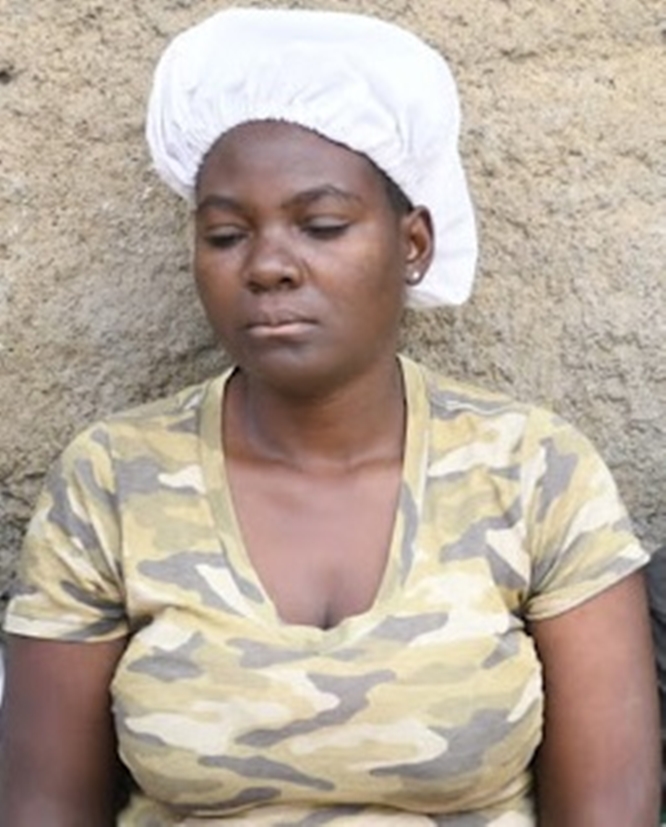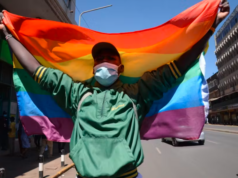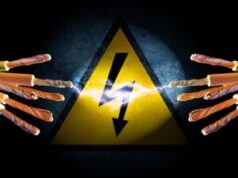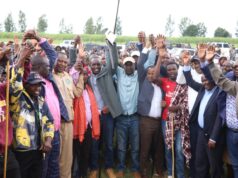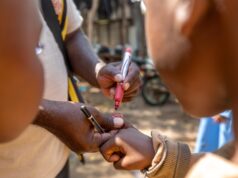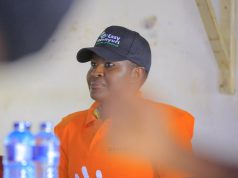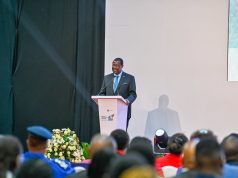For the past two years Beatrice Afande, who lives in the sprawling Ponda Mali estate in Nakuru Town has known no peace and comfort.
Languishing in misery and poverty, her chest heaves with emotion as she struggles to string together a sentence during a conversation with two neighbours who have just called on her at her single-roomed mud-walled structure she calls her home.
In February 2023 she was diagnosed with Acute Myeloid Leukemia (AML) – a type of cancer that affects the blood and bone marrow.
The 31-year-old single mother does not have money for treatment even as her situation becomes worse.
Ms Afande depends on well-wishers for food, drugs, rent, and even transport for routine hospital visits.
Her narrative mirrors that of thousands of poverty-stricken Kenyans living miserably and isolated because of cancer.
It all started in July 2022 when she suspected something was amiss after she initially started experiencing fever, stomach cramps, migraines, and joint pains.
Ms Afande started managing her condition using painkillers believing that it was just a normal discomfort and that self-medication would return her to normalcy.
But that was not to be. The agony persisted as she now also felt fatigued and lost weight significantly pushing the mother of two to the brink of depression as she sought a cure for her ailment.
As the aches got more severe and could not be numbed by painkillers a neighbour convinced her to seek a professional opinion from physicians at the Nakuru Level 5 Teaching and Referral Hospital (NTRH).
She explains that a doctor at NTRH conducted some tests and gave her medication which he said would work within a week.
And true to his word, the pain disappeared after she completed the dosage he prescribed.
However, the doctor suggested a haemogram (or blood count) just as a routine checkup. It was a test on her blood components including the red blood cells, white blood cells, and platelets.
The first test revealed she had a low count of all her blood components.
The doctor was worried about the results and asked her to wait for a week before she took another test. But there was no improvement when she took the second test.
Doctors attributed possible causes of her low blood cell count to a viral infection, bone marrow cancer, or certain tumours.
“They took a sample of my bone marrow to test for any of these possibilities and what came out was the worst revelation in my life ever,” she recounts ruefully.
According to Ms Afande, it was after visiting the hospital with hopes of being cured of the ‘mysterious ailment’ that physicians at the Level 5 hospital finally diagnosed the cancer.
“It was hard. I was shattered, broken, and in shock. I asked God so many questions. Why me? Where did I go wrong? It is the most devastating news that women from low-income settlements like me can receive.”
She wanted to keep the diagnosis a secret from her 14-year-old son Malcolm Otieno and her 11-year-old daughter Elsie Adhiambo as she was aware of how grave the illness was.
“I did not want to break the news to them, but the doctors first took them through counselling and then explained everything to them. It has been hard for my children who have since both dropped out of school due to lack of fees,” she laments.
Exactly a year after the diagnosis, Ms Afande has not started treatment for she has no money. She does not have the National Hospital Insurance Fund (NHIF) cover and depends on friends, well-wishers, and relatives.
Due to lack of money, she has also been unable to have another sample of her bone marrow analysed by doctors to determine whether a bone marrow transplant is needed or not.
Managing AML, she adds, is very expensive, especially with the numerous blood transfusions that one needs.
Given the option of health care or food, health has become a luxury in Ms Afande’s household.
Getting a single meal for the family is already a struggle.
For her son, Master Otieno who wrote his Kenya Certificate of Primary Education (KCPE) examination in 2023, he would be ordinarily focusing on academic matters at Naivasha Boys where he was scheduled to report for admission to Form-One three weeks ago, but that is not the case as he is yet to be admitted due to lack of school fees.
The 14-year-old who sat his KCPE at Angalo Primary School and scored 308 marks has been juggling between taking care of his younger sibling and fending for his ailing mother.
One can easily tell life has been tough for the young boy who is eager to continue with his education and realise his dreams of being a lawyer.
Ms Afande explains that before she fell sick, she depended on menial jobs to raise money for food and rent but with her current condition, she cannot afford his fees.
Concerning her condition, Ms Afande explains that she needs about Sh60,000 on tests alone at the Nakuru Teaching and Referral Hospital, even before the start of chemotherapy.
According to the National Cancer Control Programme, treatment in Kenya ranges from Sh175,000 to Sh800,000 where there is no need for an operation.
With surgery, the charges range from Sh800,000 to Sh1.5 million depending on the hospital and type of therapy.
Even the Sh3,500 cost of one radiotherapy session at selected public hospitals is prohibitively expensive for poor Kenyans.
The lowest chemotherapy regime costs between Sh25,000 to Sh30,000 per circle in public health facilities with the most expensive ranging from Sh500,000 per circle in private hospitals.
Chemotherapy treatment for Acute Myeloid Leukemia is typically divided into 3 phases: Induction, which is short and intensive, usually lasts about a month.
Consolidation (intensification), which is also intensive, characteristically lasts for a few months while Maintenance (post-consolidation), which is less intensive, usually lasts for about 2 years.
Master Otieno points out that his sister Adhiambo is the most hard-hit. She has been counselled, but she has kept a studious silence and has turned reclusive.
Commenting on his mother’s condition, the teenager offers that it is tough since the medication she requires is very expensive.
For her mother to survive, Master Otieno says that they need a lot of money which the family can’t afford. He further adds that they can’t afford the chemotherapies and the numerous blood transfusions on which their mother’s life is now pegged.
“We need almost Sh80,000 a month to manage her condition, one of the tablets she is required to use costs Sh15,000.”
Master Otieno says he hopes to uplift the family, community, and entire country once he is done with schooling.
He appeals to friends, well-wishers, and the government to intervene to ensure he continues with his education.
According to Professor Othieno Abinya, a consultant oncologist Acute Myeloid Leukemia occurs when the bone marrow, the factory that produces all blood cells ceases to function properly.
Instead of the normal production and development of white cells (which fight infection), red cells (which transport energy around the body and platelets (which prevent abnormal bleeding), a wrong ‘seedling cell’ which has failed to develop into a functional cell multiply in large numbers.
The ‘seedling cell’ or stem cell multiplies in large numbers and while still in an immature state fills out the bone marrow eventually spilling out into the blood.
Professor Abinya explains that these abnormal cells eventually phase out normal cellular components of the bone marrow (white cells, red cells and platelets) and when that happens the patient will experience symptoms such as tiredness, recurrent infections, and weakness due to marked reduction of white blood cells and bleeding or unexplained bruising due to diminished levels of platelets.
The condition is also called acute myelogenous leukaemia or acute myelocytic leukaemia.

